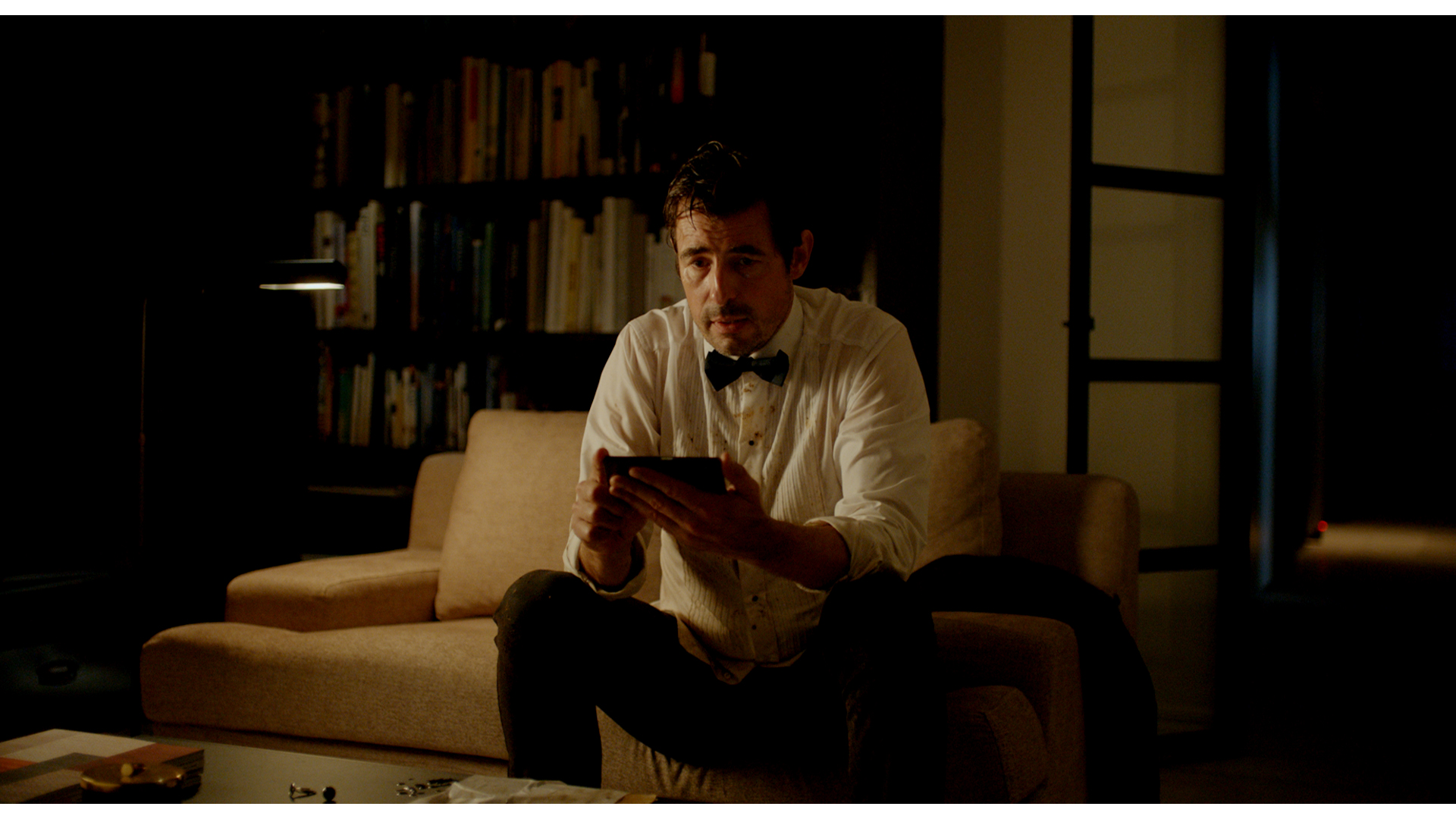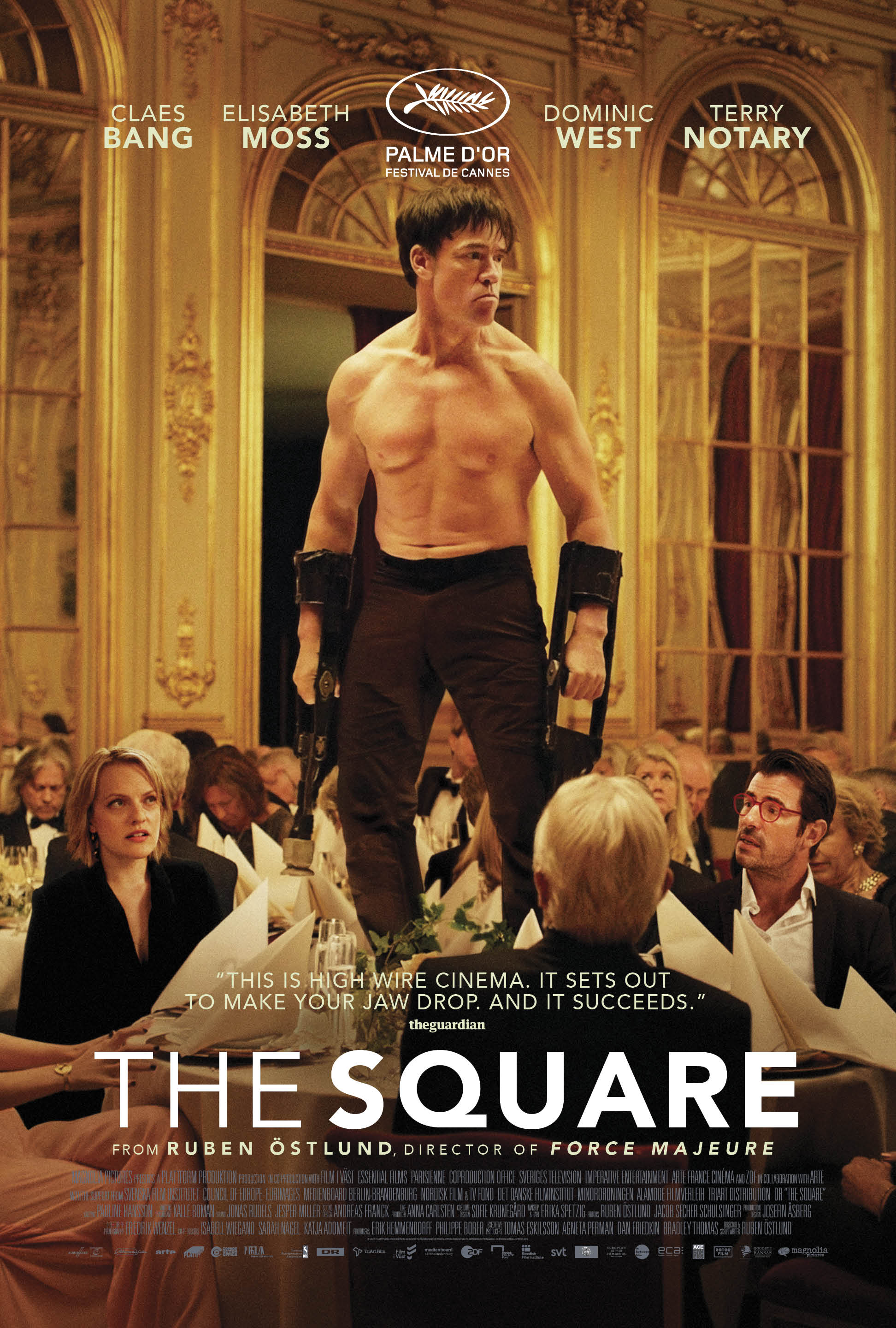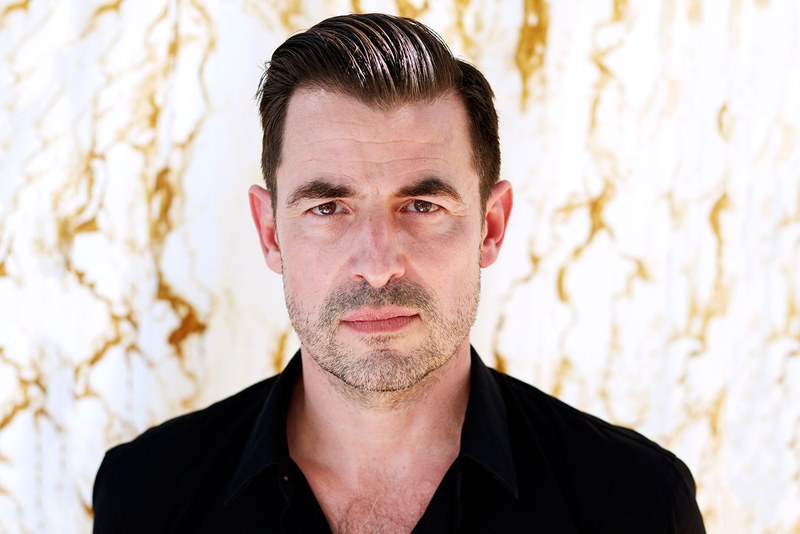Interview: Claes Bang on 'The Square,' the Monarchy and Being Starstruck at the Governors Awards
 Tuesday, November 28, 2017 at 10:30PM
Tuesday, November 28, 2017 at 10:30PM By Jose Solís.
Like Christian, his character in The Square, Claes Bang speaks with impressive assertiveness. Even when he’s poking fun at himself, he sounds like a man who’s never had any doubts or gotten himself into something he couldn’t get out of. Perhaps it’s this quality that makes his performance in Ruben Östlund’s award winning film so magnetic, and has also raised comparisons to Jon Hamm and James Bond. At age 50, the Danish actor who has mostly worked on stage and television, finds himself in the unlikely position of movie star. Position which he’s filled extraordinarily, having become the sensation of the Cannes Film Festival, as well as a dark horse for the European Film Awards where he’s competing against Colin Farrell and Jean-Louis Trintignant for Best Actor.
Watching Bang (even his name’s cool!) in The Square one gets the sense of both knowing Christian, but also feeling like he could deceive you at any moment. He’s the kind of man who seems so secure of his position in the world, that he could drag you with him without you realizing it. When I spoke to director Östlund he explained that he saw Christian as a man who, despite appearances, isn’t as free as we’d think. Earlier this fall, Bang took a break from his publicity tour to do a play in Denmark, and he also makes New Wave-like electronica - think darker Depeche Mode - under the moniker This Is Not America, making him the ultimate renaissance man. If awards season wasn’t so partial to English speaking roles, Bang would be a serious contender for Best Actor, since he delivers the kind of performance that combines unique thespian talents, with pure star power. I spoke to him about taking on a character as complex as Christian, his thoughts on the monarchy, and his favorite part of awards season so far. Read the interview after the jump...

JOSE: In order to prepare for the part you did a lot of research on museums, so what was the weirdest thing you learned about how museums work?
CLAES BANG: Museums in the US are run quite different to museums in Scandinavia which are mostly funded by the government. The conflict of those museums sometimes is that those funds only cover rent and wages, so if you want to buy art you are dependent on private money which opens up the discussion of: do these people who made the donations have any stakes in the kind of art the museum buys?
 JOSE: So they could censor art.
JOSE: So they could censor art.
CLAES BANG: Yeah, what happens in the film is that the museum has acquired a large sponsor in the shape of Baby Bjorn - they manufacture and distribute kids’ clothes - so they don’t want to sponsor the museum which profits on blowing up kids. I’ve met some managing directors and curators in Denmark, where I’m from, and Denmark and Sweden are not in the same terms. There is more private money in Sweden and there’s an ongoing discussion about the kind of input these people have. Some people think it won’t make a difference, but I imagine people on their boards wouldn’t buy certain art if it offends some sponsors, so let’s be honest, I’m quite sure if you talk to people in museums in Stockholm they’d say I’m bordering on the truth.
JOSE: Both Denmark and Sweden are kingdoms and the movie takes place in a post-monarchy world, did you feel in any way guilty or self-conscious of scenes in which the characters have a rave in a former royal castle?
CLAES BANG: No, I’m a Republican. Not in the American sense, I’d never vote for Trump, but I don’t believe in monarchy, I believe in a republic. Monarchies are meaningless institutions, so I didn’t feel bad about that, in fact I’m surprised how little fuss it’s caused in Sweden and Denmark. I thought the fuss would be bigger, because Ruben has sacked the entire royal family and moved the museum into their castle.
Christian does many terrible things in the movie. Do you feel the need to understand all of his decisions or do you just put on his costume so to speak?
I don’t think it’s hard to understand Christian, he always finds himself in bad situations when he does something stupid. For instance when he approves of these drawings about the kid exploding in the meeting, he’s just had this second letter from the boy saying “I’m gonna make a chaos out of your life,” and when he meets that boy, he’s just been at this party where everything goes wrong. We all do very stupid things, I can relate to everything that happens, I’ve done things as stupid as he has. But I think if you couldn’t sympathize with him or understand him on some level, you wouldn’t be able to sit through two and a half hours of watching him. I’ve heard most people sympathize with him at the end, I don’t think you’d feel that if you thought he’s just a moron.
You’ve said before you consider yourself a stage actor first and foremost, but what elements of cinema would you like the theatre to have and vice versa?
I want to do both because you can only get those things from each. Stage is stage and movie is movie work. I’m sure I’ve taken something from film to use on stage and the other way around, but stage is you being there with the audience, it’s a “here and now” feeling. A famous Danish director said “theatre is written in water” and I think that image is beautiful. As an audience member you can go onstage and bite the actor and that’s amazing. I also love telling the whole story from one end to the other in theatre, you sorta do the editing in the moment. When you work on film someone else does the editing, you just show up to work and you’re done, but I also enjoy not having this responsibility. That’s how Ruben works, all he wants is for you to show up, and be there in the moment, being as truthful as you can. It’s a privilege when you can let that go. I enjoy both parts so I try not to combine them into one thing.
You’ve been doing a monologue based on Jan Guillou’s novel Evil for over a decade. The book and film are great, but having never seen your play I wonder what do you learn about characters you play for such a long time?
It would’ve been wonderful if you’d seen it! Maybe I’ll bring it here sometime. I think Evil is brilliantly written, I’ve done it in Danish and English, I think the stage adaptations is better than the film which was too Hollywood-ish. In the play you don’t know if he’s a good guy or a bad guy, the film version is brilliantly acted, but in terms of being closer to the book, the stage version is closer. The guy in the book, just like Christian, doesn’t do the things he says. He beats people up because he can do it, while he talks about everything wrong with violence. That duality is clearer in the stage version. Every time I do it there are new connections in the story that become clear to me, I also do it because it’s like super training for an actor. You don’t do an hour long monologue without putting all of yourself into it. It’s like doing training with an audience right there, it keeps your instrument sharp. That’s why I go back to it again and again.
It’s also more relevant every day, here you have Trump and he’s turning the world into what that “evil” is. It’s never been not relevant for an audience to see this. When I talk to people after the show, we’ve all been through that situation where you’re at the lowest point of the hierarchy. We’ve all been bullied in school, and that feeling of not being able to do anything is recognizable even when we’re in our 40s and 50s. I’m probably going to do that play forever, I already have ten gigs lined up for Denmark in the spring. I’ve done it in London, so I’d love to bring it to the US.

I read being in Hair was what made you want to become a professional actor. Are there any other musicals you’d like to be in?
No, I’m not a big musical fan to be honest. Sorry. When I got into acting we did musicals in high school and everybody collaborated, I was in a band then and someone said they were looking to cast a part but the actor had to act and sing. I didn’t think I knew how to act, I auditioned and it went very well. After that I became involved in project after project. In Denmark at the time there was an age limit where you could apply to get into the National Theatre School, I was bordering on that so I decided to give it a go. I think it was by chance we started with Hair, I’ve done so few musicals and I don’t think there’s that many good ones out there. It’s so weird to see people in the middle of a hundred actors just start singing about something. Some old musicals are good, the Sondheim and Bernstein ones, but musicals are not for me.
The film won the Palme d’Or and now it’s representing Sweden at the Oscars next. How good have you become at the whole red carpet thing?
I’m not a very good red carpet goer. I’ve had my fair of practice with this film though.
His publicist in the background: He’s doing a great job!
He thinks I’m fine, so let’s go with that. I’m totally excited about the Oscars though, I’ve never been so that would be cool. I went to the Governors Awards and got a little taste, but I’d love to go to the Oscars and the Globes for that matter. That’s a long way still, so let’s see what happens. We got the Cannes thing and it couldn’t get better than that.
Were you starstruck by anyone at the Governors Awards?
I was so starstruck, but my favorite part was when [Owen Roizman] the cinematographer who did The French Connection, Tootsie, The Exorcist and a lot of other films and who had never won, was given the Lifetime Achievement Award and you could see how moved and happy he was. That was the moment of the evening for me.
The Square is now in theaters.

Foreign Language Film Coverage
Quit Staring at My Plate - Croatia - Interview
You Disappear - Denmark - Interview
Felicité - Senegal - Interview
The Divine Order - Switzerland - Interview




Reader Comments (3)
Nice interview. I'm not a big fan of The Square, but I though he was excellent in it, and ideally he'd be part of the Best Actor conversation this year.
Really interested in seeing this one. Thank you for the interview!
I loved The Square, and reading this interview I realize there are subtleties lost in translation, like the references to the monarchy and the scenes set at the palace. I might even love it more knowing more of the cultural context. Thanks for the interview!